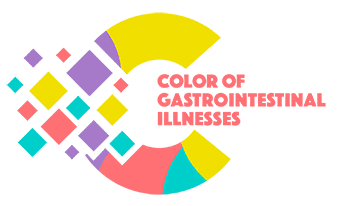Adults in the US make an estimated 35,000 decisions a day (1). Day-to-day decisions are important for people living with inflammatory bowel disease or other chronic diseases, as they navigate the complexity of managing a disease while maintaining a meaningful life.
Health care decisions should be made during collaborative conversations between patients and their health care providers (HCPs) because research shows that using a shared decision-making approach may improve health outcomes and quality of life(2). Unfortunately, less than half of patients feel that their HCPs understand their personal health goals and/or work with them as a team(3).
Shared decision-making is a process through which the patient and HCP share equally in the decision-making process, with the HCP being the expert in treatment and the patient being the expert in their own preferences, priorities, and lifestyle.4 This process can help elevate the patient’s voice so they feel heard and instill confidence, reinforcing that they have made an informed choice that best fits their needs and goals.
Many shared decision-making tools are available online(4). Examples include a comprehensive guide by Danielle Ofri, MD(5); a communication guide from the Partnership for Clear Health Communication at the National Patient Safety Foundation (6); and a personal decision guide from the Ottawa Hospital Research Institute(7). These tools can help you prepare for appointments.
Remember to ask questions when you don’t understand your disease, diagnosis, or treatment options, and be sure to voice your personal values and wishes. Engaging in shared decision-making helps set realistic expectations, helps you and your HCPs function as a team with a unified goal, and enables you to feel confident about your care plan.
This Post is Sponsored by Takeda Pharmaceuticals.
- Pignatiello GA, Martin RJ, Hickman RL Jr. Decision fatigue: a conceptual analysis. J Health Psychol. 2020;25(1):123-135.
- Légaré F, Adekpedjou R, Stacey D, et al. Interventions for increasing the use of shared decision making by healthcare professionals. Cochrane Database Syst Rev. 2018;(7):CD006732.
- Alston C, Paget L, Halvorson G, et al. Communicating with patients on health care evidence. Institute of Medicine; September 2012. Accessed July 27, 2022. https://nam.edu/wp-content/uploads/2015/06/VSRT-Evidence.pdf
- Fox JC, Lipstein EA. Shared decision making in gastroenterology: challenges and opportunities. Mayo Clin Proc Innov Qual Outcomes. 2020;4(2):183-189.
- Ofri D. A doctor’s guide to a good appointment. New York Times. February 1, 2018. Accessed August 8, 2022. https://www.nytimes.com/guides/well/make-the-most-of-your-doctor-appointment
- Ask Me 3: Good Questions for Your Good Health. Partnership for Clear Health Communication at the National Patient Safety Foundation. Accessed August 8, 2022. https://www.ihs.gov/sites/healthcommunications/themes/responsive2017/display_objects/documents/AskMe_8-pg_NatAmer.pdf
- O’Connor AM, Stacey D, Jacobsen MJ. Ottawa Personal Decision Guide. Ottawa Hospital Research Institute; 2015. Accessed August 8, 2022. https://decisionaid.ohri.ca/decguide.html
